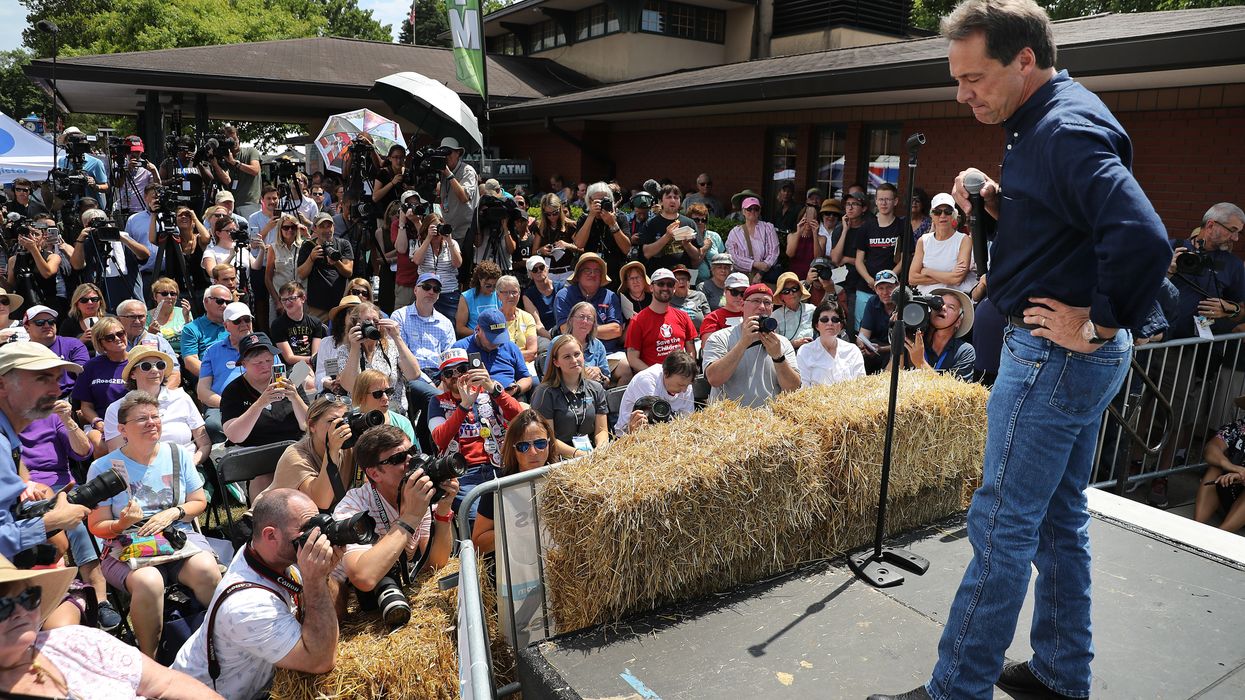Steve Bullock is hoping to rejuvenate his lagging presidential bid with an infusion from a rarely tapped vein of public money — but he's going to be stymied indefinitely because the federal officials tasked with approving the move have been stopped from doing their jobs.
More than any other White House aspirant, Montana's governor has focused his campaign on a commitment to getting big money out of politics, which he sees at the root of Washington's dysfunction and de facto corruption. And so his application to become the first — and probably the only — 2020 candidate to use taxpayer funds for his campaign can fairly be described as walking the walk after talking the talk.
Except the Federal Election Commission has been effectively shuttered for one month for lack of a quorum, so it does not have the legal authority to give him the go ahead.
The Bullock campaign said it would file the papers Tuesday, right after the end of the third quarter for fundraising. At that point the FEC is supposed to audit the campaign's books to ensure he qualifies.
It's normally a straightforward undertaking, and there seems little doubt about the outcome, but it cannot happen until there are at least four commissioners in office. And the Senate has taken no steps toward confirming President Trump's single nominee for one of the three vacancies.
An alternative is to sue in federal court to make the Treasury release the money, an approach Republican Sen. John McCain was starting to pursue while the FEC lacked a quorum during a stretch of his 2008 presidential bid.
All the top presidential contenders routinely relied on the public financing system during the first decades after it was created, in the wake of the Watergate scandal, to reduce the influence of big-money donors. George W. Bush in 2000 started the trend against taking the money, which requires candidates to abide by strict spending limits. The trend has become conventional practice since the courts and the FEC have energized the flow of cash through the system.
If Bullock ends up with public money, he will be the first Democratic presidential candidate to get some since former Maryland Gov. Martin O'Malley received $1.1 million during his short-lived run of 2016. And that year, Green Party candidate Jill Stein received $456,035.
Under the system, tax dollars match the first $250 of each contribution eligible candidates in the primaries receive from individuals. The money comes from people who allocate $3 off their taxes to the fund on their federal returns.
Bullock has made a single debate stage appearance, in July, and his fundraising numbers and poll showing (consistently less than 1 percent) mean he's been excluded from the October debate.
In the second quarter, April through June, he raised $2.1 million — while the top fundraiser at the time, Mayor Pete Buttigieg of South Bend, Ind., hauled in $24.9 million. In the same time period, Bullock spent $582,748 — so he's nowhere close to reaching the limits on spending, measured in the tens of millions of dollars, that govern public financing recipients.
Bullock's second quarter haul suggests he could be eligible for an addition $1 million or $2 million. His campaign declined to say how much he will report when third quarter totals have to be submitted on Oct. 15.




















